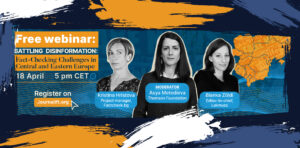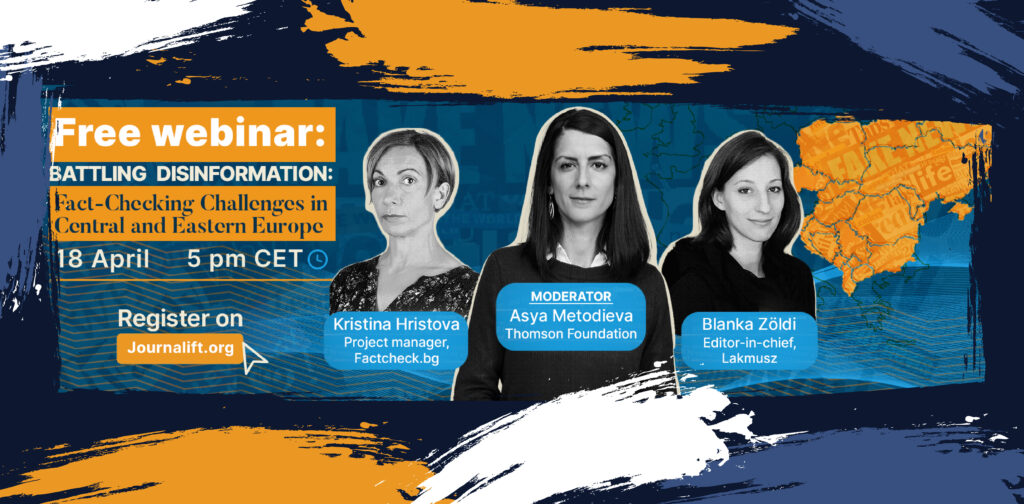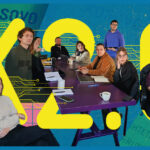It’s Saturday. G., a student of Maths at the University of Prishtina, is in front of the laptop, trying to focus on the professor’s explanation about descriptive geometry. A difficult subject and it’s all with drawings. She’s trying to concentrate maximally, when at that moment the doorbell rings and the guests enter the house.
She gets up, greets the guests, while the lecture continues…The drawings change, while G., dealing with the guests, loses this lecture, like many others…
One of the factors that has influenced the quality of her studies is the environment not suitable to study.
She says, “The study of subjects in the mathematics branch has been more difficult with the online teaching system. This is due to the smaller number of problems completed during the class, which has resulted in poorer quality of the level of problems; consequently, we have gained less knowledge than during physical presence in class.”
She says that online learning has penalised her in many areas and has been very ineffective.
“In many cases, the scheduled classes have not been held according to the class schedule for various reasons on the part of professors. Many classes have also been held during weekends, which has led to complete failure in day planning for students. In my opinion, the organisational system of online classes has penalised us in many areas and has produced very little effect,” she continues.
Denada, a student of the Faculty of Law at the University of Tirana, faced problems with her internet connection and the lack of electricity.
“It was a problem when I had to answer at a seminar or present a task and suddenly the electricity would go off. It seemed like it might have been intentional on my part, when in fact it was a technical problem,” she says.

She faced these problems even during the exams.
“Technical management was quite difficult, especially in the case of exams.”
For her, online learning changed a lot the way she studied. The lectures were in audio, which she listened to whenever she wanted and the questions she usually asked in class, she was now discussing them in seminars.
However, these are mainly difficulties that are encountered while online learning in a pandemic.
According to the director of the Institute for Education Studies "EdGuard” in Kosovo, Rinor Qehaja, “Switching to online lectures, lack of interactivity, lecturers not preparing for online teaching, restricting students in lectures are among the many shortcomings with significant impunity in this area.”
Qehaja says that university education is focused very little on the quality of studies, which is the real interest of students.
“This negligence, which came to light during the pandemic as well, incompetence of full university lecturers in online teaching methodology, is once again proof that university education is lacking in a good lecturer above all,” he says.
Universities also admit that there were lots of challenges in online learning during the pandemic.
“Regarding the difficulties faced by students during the learning process in the pandemic, through a research conducted by the University of Prishtina, students reported that they encountered technical problems, such as power outages, problems with the Internet, non-functioning of technical equipment, then lack of interaction with other students, exercises (laboratory and other) they were difficult to understand through videos, and other mainly technical aspects” said the rectorate of the University of Prishtina.

These challenges have also been mentioned by students, some of whom have said that they even decided to abandon their studies.
Although this has been a period where the difficulties were the same for everyone, apparently there are cases where difficulties in the same situation can be interpreted differently. This is about two students from the University of Tirana, who have different views related to the support provided by their lecturers during this period. Furthermore, regarding how supportive or helpful their lecturers have been during this time, Elisabeta and Orkida, students in the the Faculty of Medicine and the Faculty of Law, seem to have relatively different opinions about this part. Orkida said, “The lecturers were generally supportive, which helps all of us a lot.”

“As for us and the lecturers, this was not the most efficient way but it was the only one that could be found in this case. They tried to adapt to the developed platforms, although certainly with difficulties. Most of the pedagogues were understanding both those who had the opportunity to be present and those who most of the time did not have the opportunity to participate in classes. Of course, there were also those who did not show so much understanding at first but everything was resolved.” - said Elisabeta.
Online education has not been considered appropriate even by the Ministry of Education in Kosovo. The Ministry of Education has stated that the level of education during the pandemic has not been good. Deputy Minister Dukagjin Popovci told the local media that, ”the level of teaching in the online system is not adequate at all.”
Many students and teachers were faced with unfamiliar programs, poor internet, lack of technical equipment, and in many cases with lack of electricity. Some students found themselves completely excluded.
However, the online system has been a very difficult experience, especially for those students who did not have the technical equipment to attend the classes.
Online education deepened the social differences

I wish someone would give us a laptop so we can attend our online classes and then we will return it” – this request from a 14-year-old boy stated in a documentary film made by journalists in North Macedonia during the pandemic saddened the whole nation. The story followed this boy and his older sister, who come from a socially vulnerable family and couldn’t afford to buy digital devices to attend the online education. The author of the documentary, journalist Sunai Sabrioski, says that this is only one of the examples of children who didn’t have equal access to online education during the COVID-19 pandemic.
“This documentary exposes the weaknesses of the educational system and it denies the picture that the education authorities wanted to present that every child/student has favourable conditions to attend online classes. Following the release of the documentary, our team received hundreds of messages and donations for these students from NGOs and people who were willing to donate computers. However, the only institution that reacted after the documentary was the municipality and the mayor, but the Ministry of Education stood by their statements that all children have the option to attend online classes.”
According to the statistics of the Ministry of Education in North Macedonia, 10% of all students didn’t have the necessary devices or internet to attend online classes. However, the Ministry says that they provided other options for these children to attend the classes.
“Last year, schools and municipalities provided the necessary IT equipment to monitor online classes, while students who did not have electricity and internet in their homes were provided with materials, or attended classes in school. Local governments and schools made additional investments during the summer for smooth implementation, which strengthened the resources for conducting online teaching.”
But the president of the High School Student Union, Luka Pavikevik, is adamant that not all students had access to online classes. Online education also exposed the social differences in the society, says Pavikevik:
“Before the pandemic, there was a generally accepted consensus that Macedonia is a fully digitised country but the reality turned out to be entirely different. Distance learning was just another indicator of the deep social differences in the Macedonian society. As such, distance learning was unequal and the state did nothing to provide adequate devices or internet access to students who needed it.”
According to the Ministry of Education, last school year was successful. However, they do admit that difficulties arose, such as poor internet connection in schools and lack of IT devices, but these difficulties were resolved in short times, they say.
“Despite all efforts of teachers for successful realisation of the event, most likely, some students failed to master a certain content, or did not achieve satisfactory results during the new year. That is why teachers, in accordance with the current practice and experience, as well as the guidelines provided by the Bureau for Education Development, during counselling visits to schools, before they engage in discussing new topics, new content, they repeat and relate new knowledge with students, with students' experiences, using easier mastering of the material and achieving learning representatives. Of course, every teacher is obliged to organise additional work with students who have difficulties in learning and achieving learning activities,” the Ministry of Education in North Macedonia said.
And while the Ministry is satisfied with the results of the last school year, a poll conducted by the High School Student Union in North Macedonia rated the quality of online education with 1 out of 10. The president of the Union, Luka Pavikevik, points out the key reasons.
“There was a problem with concentration, teachers were not trained enough how to conduct online classes, and often students themselves escaped joining online classes. In conclusion, high school students faced three key problems: lack of concentration, poorly trained staff, and inconsistent enforcement of rules,” says Pavikevik, president of the High School Student Union.
10 thousand students in Albania without access to online learning
Access to education was a problem in Albania as well. According to the information of education authorities, ”in the first closing period due to the pandemic, in March 2020, the institutions identified about 10 thousand students who did not have access to online learning.”
This is why the United Nations Children Fund (UNICEF) is encouraging countries to work on ensuring equal access to education in future crises, as they say that school closures are not unique only to the COVID-19 pandemic but can happen due to many other factors in the future. According to UNICEF, available evidence suggests that about 30 percent of school children worldwide are not able to learn remotely. Since the COVID 19 pandemic is still an ongoing global problem, online or remote learning will continue to play an important role in delivering education in the near future.
The European Commission Report on education also notes that COVID-19 pandemic has influenced the education system in all three countries.
North Macedonia and Albania are moderately prepared but Kosovo is at an early stage of preparation for education. The quality of education continues to be poor and needs to be significantly improved in Kosovo, are some of the conclusions in the report. The European Commission report on education also notes that Albania was faced with an earthquake, which caught the system unprepared, which as such was not equipped with adequate teachers’ training and teaching practices to ensure effective distance learning.
The progress report states that the three countries should improve access to quality of education for all, especially children with disabilities and children from Roma communities, and improve support for teachers’ training and professional development as well.
Pandemic’s impact on children’s mental health

But the pandemic has not only caused difficulties in the learning process for students. It also had an impact on their emotional state and mental health. For students, the pandemic meant an immediate lockdown within the apartment, without contact with each other, and this was accompanied by emotions such as fear, solitude, pessimism.
Some of the parents we talked to say that the fact that children were spending a lot of time at home in front of the computers not having the opportunity to socialise and interact with their friends and teachers in person, influenced their mood, their discipline, and behaviour.
Jana Janeski Risteski is a parent of two schoolchildren. She says that besides education, she is also concerned about the impact of the pandemic on the mental health of the children.
“I think the biggest problem is the communication between them. They are limited and this has a very bad effect on their further development. They can gain knowledge in many ways, but the opportunity to socialise here is unfortunately inaccessible to these generations. They do not have many opportunities to socialise or to have normal communication, and that will leave lasting consequences on their mental health,” she says.
Graduation parties, ceremonies at the end of the school year - all these joyful moments during school years were taken away from students during the pandemic.
This resulted in negative emotions like loneliness, stress, pessimism, fatigue, that were dominant among a lot of students, as psychologists note.
“Anxiety and depression were the most frequent issues of persons seeking psychotherapeutic help. Uncertainty and fear about the future are key elements in the emergence of anxiety. House stay without contact with people, pessimism about the situation, prompted depressive thoughts. Sleep disorders were also a further problem encountered by individuals who seeked their psychotherapist. Of course, the number of demands has increased.” Manjola Çollaku, a psychotherapist from Albania, says:

“I cannot make a division between pupils and students when they seek help, I personally have had more adults. Students, especially those in the stage of puberty / adolescence, are more difficult to treat,” - Çollaku continues.
Since the beginning of this school year, most governments have decided to reopen schools, even though the pandemic is not over yet. The conclusion was that nothing can take the place of the classroom and the physical presence in schools. Both teachers and students were delighted that they are back in the classrooms, even if it is under strict protective measures and pandemic protocols.
Now that the lectures are in class, everything seems easier. With a mask in her face, G. is studying again in the city library with her friends and she’s enjoying her student life. She can’t imagine going back to isolation and studying mathematics on her own, in front of the computer.
Written by: Albiona Hajdari (Kosovo), Megi Cuka (Albania), Ivana Stojkova (North Macedonia)































